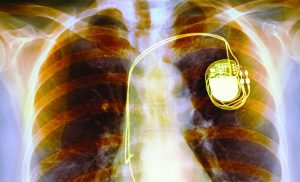 Did you know that heart disease is the leading cause of death in women? It’s commonly overlooked because we statistically tend to think of men as having heart disorders or suffering from irregular heart arrhythmias and heart attacks. It’s important to know the signs and to focus on heart health for all, especially women since it’s often a silent killer because its indicators are ignored.
Did you know that heart disease is the leading cause of death in women? It’s commonly overlooked because we statistically tend to think of men as having heart disorders or suffering from irregular heart arrhythmias and heart attacks. It’s important to know the signs and to focus on heart health for all, especially women since it’s often a silent killer because its indicators are ignored.
Symptoms of Heart Disease in Women:
• Pain in jaw, shoulder, neck or back
• Heart arrhythmia
• Shortness of breath
• Nausea
• Lightheaded
• Fatigue
• Excessive sweating
• Swollen legs and feet
• Excessive phlegm and coughing
Many women suffer from Microvascular Disease, which is a form of vascular disease that attacks the tiniest microvascular system in the body. Once these small blood vessels (microvessels) are damaged, the flow of oxygen and hormones, distribution of nutrients, and elimination of hazardous wastes cause a sluggish system to wreak havoc on the heart and circulatory structure. Over time, this can lead to a weakening of the heart muscle, enlargement, or heart failure.
Women suffering from heart disease can benefit greatly from, pacemakers, or otherwise known as CRT (Cardiac Resynchronization Therapy), which can help improve heart function and lessen the associated symptoms of heart failure. Given the advancements in pacemakers and defibrillators size and discreetness, it’s critical for anyone with heart disease to speak to their cardiologist about this treatment option.
CRT/Pacemaker Benefits:
• Resynchronizes the hearts rhythm
• Increases blood flow
• Alleviates shortness of breath
• Controls heart arrhythmias
• Improves overall cardiac function
How do pacemakers work?
To help control heart arrhythmias, a pacemaker can be placed “usually under the collar bone”. Pacemakers are very tiny devices that use low energy electrical pulses to prompt a rapid heartbeat to return back to a slower pace. Pacemakers treat arrhythmias by controlling the pulse and enabling the heart rate to normalize.
Insertion of an implantable cardioverter-defibrillator (ICD) is a common option for life-threatening ventricular arrhythmias. The device monitors the heart rhythm and delivers pacing or shock therapy to terminate the arrhythmia. Nonreversible bradycardias are treated with the insertion of a permanent pacemaker that also monitors the heart rhythm and delivers an impulse to stimulate a heartbeat as needed.
An ICD detects when a patient’s heart starts to beat too quickly, and it understands the impending Sudden Cardiac Arrest is about to take place. The ICD will give the patient an automatic shock to keep them alive. Many people equate an ICD to be like having your own paramedic watching over you twenty-four hours a day. It is a game changer and a critical component to surviving a cardiac arrest.
There have been substantial studies showing that Cardiac Resynchronization Therapy (CRT) devices reduce the risk of death by up to 60 percent. This outcome is substantial, one that more women should look into for its life-saving benefits. It’s imperative that if you are having symptoms of a heart disorder to call your cardiologist to have the appropriate testing done now.
Lakewood Cardiovascular Consultants
Lakewood Cardiovascular Consultants are experts in taking care of patients with established and complex cardiovascular disease. They recognize the importance of preventive care in those with high-risk factors for the heart, including those patients that smoke, or have smoked in the past.
This information is for educational purposes only and is not intended to replace the advice of your doctor or health care provider. We encourage you to discuss with your doctor any questions or concerns you may have.
Dr. Calderon is a board certified cardiologist. He attended Francisco Marroquin University in Guatemala followed by residencies and fellowship at University of Tennessee School of Medicine in Memphis, TN.
Certifications:
– Board Certified in Internal Medicine
– Diplomate of the American Board of Nuclear Cardiology
– Fellow of the American College of Cardiology
– Fellow of the American Society of Coronary Angiography and Intervention.
Dr. Calderon brings national expertise in the diagnosis and treatment, with a minimally invasive approach, to Cardiovascular Disease. He is a member of the American Medical Association, American College of Cardiology, American Heart Association and Manatee County Chamber of Commerce.
Call To Schedule Your Appointment Today!
(941) 907-1113









